Departmental news
WMG PhD student attends prestigious Global Young Scientists Summit
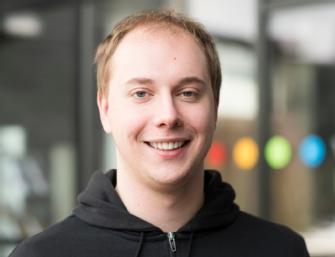 WMG PhD student Chris Ellingford has been selected to attend the 8th Global Young Scientists Summit (GYSS) in Singapore from 14 to 17 January 2020.
WMG PhD student Chris Ellingford has been selected to attend the 8th Global Young Scientists Summit (GYSS) in Singapore from 14 to 17 January 2020.
Chris was one of only 300 participants, from across the world, and one of only five from the University of Warwick invited to attend.
GYSS gathers young researchers and scientists from across the world to encourage them to pursue their scientific ambitions. They have the chance to network with peers, as well as distinguished scientists and researchers.
The theme for this year’s event is "Advancing Science, Creating Technologies for a Better World,” with an impressive line-up of speakers including recipients of the Nobel Prize, Fields Medal, Millennium Technology Prize and Turing Award.
At GYSS Chris, as one of only 100 participants selected, will present at the poster session, and take part in lectures and panel discussions, and have the opportunity to interact with speakers in informal small group sessions. Outside of the Summit, Chris will also have the chance to visit local universities and research centres to learn more about Singapore’s research and innovation ecosystem.
Chris is currently in the 4th year of his Research Degree at WMG. He is based within the Nanocomposites team investigating "Self-healing Elastomeric Nanocomposites for Actuation and Energy Harvesting."
WMG Professor appointed Director of the Institute of Digital Healthcare
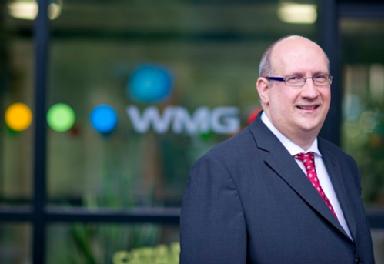 Professor Theo Arvanitis has been appointed as the new Director of the Institute of Digital Healthcare (IDH), at WMG.
Professor Theo Arvanitis has been appointed as the new Director of the Institute of Digital Healthcare (IDH), at WMG.
Professor Arvanitis takes over the new role replacing Professor Sudhesh Kumar from Warwick Medical School.
He joined WMG in 2007, as a Professor of e-Health Innovation and Head of Research in IDH, and his research interests span the areas of biomedical engineering, neuroimaging and health informatics.
Professor Arvanitis will manage his new role alongside his current research responsibilities within WMG. He will be supported by a new IDH Advisory Board which will be appointed in the new year.
WMG Professor takes on new role as Deputy PVC (Research) for Knowledge Exchange and Partnerships
Professor Kerry Kirwan has been appointed as the new Deputy Pro-Vice Chancellor (Research) for Knowledge Exchange and Partnerships, for the University of Warwick.
Knowledge exchange, industry partnerships and innovation are key components of much of the University’s research, with Professor Kirwan appointed to support this growing area.
Kerry, a Professor at WMG is also a Director of the £11m EPSRC Centre for Doctoral Training in Sustainable Materials and Manufacturing (EngD), Strategic Director of the £10m Industrial Doctorate Centre and Head of WMG’s Sustainable Materials and Manufacturing Research Group. He also sits on the University’s Research Executive Group.
Professor Kirwan is actively involved in the newly emerging Knowledge Exchange Framework programme, Monash-Warwick Alliance, Warwick in Europe, the Global Challenges Research Fund, Midlands Innovation, Energy Research Accelerator (ERA) and the Innovative Manufacturing and Future Materials GRP.
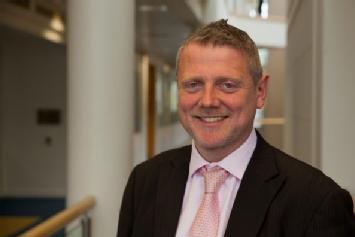 Speaking about his new appointment, Professor Kirwan said: “I am delighted to take up this position and very much look forward to continuing to work with the Pro-Vice Chancellor for Research to ensure we continue to grow our knowledge exchange, innovation and business and industry partnerships, and ultimately advance the outstanding research achievements of the University.”
Speaking about his new appointment, Professor Kirwan said: “I am delighted to take up this position and very much look forward to continuing to work with the Pro-Vice Chancellor for Research to ensure we continue to grow our knowledge exchange, innovation and business and industry partnerships, and ultimately advance the outstanding research achievements of the University.”
Professor Pam Thomas, Pro-Vice Chancellor (Research), commented: “Professor Kirwan will play a critical role and his skills and experience will be instrumental in furthering the development of Warwick as a leading research-intensive University with strong industry partnerships – locally, nationally and globally.”
WMG Professor recognised by UK engineering institution
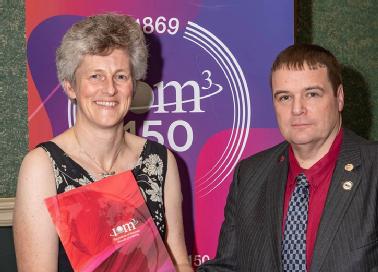 Congratulations to WMG Professor Claire Davis who has been awarded the prestigious Hadfield (Sir Robert Hadfield) Medal and Prize by The Institute of Materials, Minerals and Mining (IoM3).
Congratulations to WMG Professor Claire Davis who has been awarded the prestigious Hadfield (Sir Robert Hadfield) Medal and Prize by The Institute of Materials, Minerals and Mining (IoM3).
Professor Davis was presented with the award in recognition of her exceptional contribution to the steel industry and its value chain.
The Hadfield Medal is widely recognised as a distinguished achievement in relation to metallurgical practice, process development, product development, metallurgical understanding or design engineering connected with iron and steel or associated industries.
Professor Davis holds the Royal Academy of Engineering / Tata Steel Chain in Low Energy Steel Processing at WMG. Her research focuses on the development of microstructure during processing and the relationships between microstructure and properties (both physical and mechanical) in steels.
Find out more about Professor Davis’s research here.
Celebrating dedication and hard work
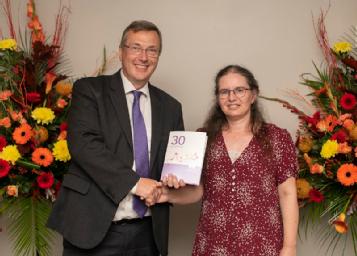 Six members of WMG staff have been recognised for their hard work and commitment at the Warwick Long Service Awards.
Six members of WMG staff have been recognised for their hard work and commitment at the Warwick Long Service Awards.
Professor Margaret Low, Professor Kevin Neaily, Richard Moffatt, Dr Neil Davis, Helen Neal, and Professor Steve Maggs have together clocked up over 160 years at the University.
The six were honoured at a special awards ceremony hosted by Stuart Croft, Vice-Chancellor and President of the University of Warwick.
Professor Margaret Low, who is celebrating 31 years at WMG, said: “WMG has changed so much since I first joined in 1988. I have some wonderful colleagues and there is always new challenges which helps to keep things interesting.
“I teach on the e-Business Management Master’s Programme, but I’m also the Widening Participation Officer and lead WMG’s Outreach Programme. This means I get to spend lots of time with youngsters from a variety of backgrounds introducing them to STEM subjects from a young age.”
Find out more about careers at WMG here.
School of Engineering Achieves Silver Athena SWAN Award
Warwick School of Engineering achieves the Athena SWAN Silver Award representing commitment to gender balance.
Top industry award for WMG research
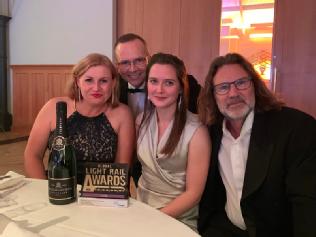 WMG’s BRAINSTORM research project, with Far-UK, Composite Braiding and Transport Design International (TDI), was presented with the Technical Innovation of the Year award at the prestigious Global Light Rail Awards.
WMG’s BRAINSTORM research project, with Far-UK, Composite Braiding and Transport Design International (TDI), was presented with the Technical Innovation of the Year award at the prestigious Global Light Rail Awards.
The Awards, dubbed as the industry’s Oscars, recognise outstanding achievements in the global light and urban rail sector.
Working with Far-UK, Composite Braiding and TDI, WMG researchers created a new design of an incredibly lightweight Very Light Rail (VLR) vehicle frame weaved from carbon fibre composites into a series of tubes to create a prototype demonstrator frame - the first of its kind.
Dr Darren Hughes, Associate Professor in Materials and Manufacturing explained: “Our BRAINSTORM VLR research 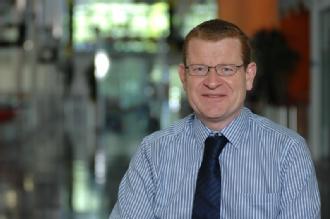 partnership has achieved significant weight-saving, allowing VLR services to accommodate more passengers while reducing the energy required to propel the vehicle and the stress placed on the rails and road surface.
partnership has achieved significant weight-saving, allowing VLR services to accommodate more passengers while reducing the energy required to propel the vehicle and the stress placed on the rails and road surface.
“The technology also ensures that the vehicle is tough for a long life in service, easily repairable when accidents happen and strong enough to protect the passengers on board.”
The judges praised BRAINSTORM for its innovation, vision and ambition to create not only new manufacturing processes but potentially a whole new industry.
One judge said: “This is what the industry has been waiting for decades. Aviation and automotive do this already, so it’s great to see a UK consortium bringing us up to that level. I can’t wait to see the first full vehicle next year.”
Find out more about the Global Light Rail Awards here.
WMG’s partnership with West Midlands Police honoured at prestigious industry awards
WMG’s forensic research partnership with West Midlands Police was honoured at the TCT Awards, this week, scooping top spot in the Inspex Application Award category.
The Awards recognise the innovators, technologies and collaborators behind the leading examples of Additive Manufacturing, 3D Printing, Design and Engineering across the globe.
Professor Mark Williams, Leader of the Centre for imaging, Metrology, and Additive Technology (CiMAT) at WMG explained: “We have helped to provide expert witness 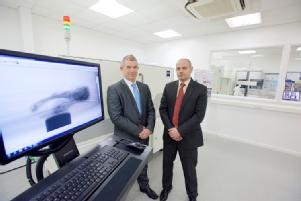 testimony in over 100 homicide cases by 13 different police forces across the UK. Cases include strangulation, stabbing, blunt force trauma and bone fractures.
testimony in over 100 homicide cases by 13 different police forces across the UK. Cases include strangulation, stabbing, blunt force trauma and bone fractures.
“In April we opened a new WMG Forensic Centre for Digital Scanning and 3D printing – a research hub supporting Homicide Investigation funded by West Midlands Police to scan injuries and produce 3D print outs for use in expert testimonies.
“The scans are 1000 times more detailed than hospital scans, and can detect microscopic injuries which could otherwise be missed by conventional medical CT scanners. 3D renderings are then produced of the injuries, and their age can be identified too. The renderings are used in court to during trials to provide visual context and support the pathologist’s testimony.”
WMG’s heritage forensics was also recognised at the Awards, with Professor Williams and his team being Highly Commended for their work with Oxford University Museum of Natural History.
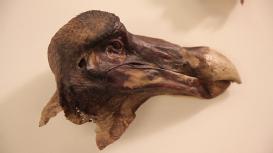 In this project the use of 3D scanning has rewritten natural history for a number of rare objects within Oxford University Museum of Natural History’s collection including unearthing surprising evidence that the Oxford Dodo was shot in the neck and back of the head with a shotgun. The findings cast doubt on the popular theory that the Oxford Dodo is the remains of a bird kept alive in a townhouse in 17th-century London.
In this project the use of 3D scanning has rewritten natural history for a number of rare objects within Oxford University Museum of Natural History’s collection including unearthing surprising evidence that the Oxford Dodo was shot in the neck and back of the head with a shotgun. The findings cast doubt on the popular theory that the Oxford Dodo is the remains of a bird kept alive in a townhouse in 17th-century London.
Find out more about CiMAT here.
UKRI fellowships awarded to seven University of Warwick academics
Several academics at the University of Warwick have been awarded a UKRI Future Leader Fellowship, providing world-class research in topics including autonomous vehicles to life in outer space.
The UK Research and Innovation Future Leaders Fellowships (FLF) scheme is designed to increase the supply of talented individuals needed to ensure that UK research and innovation continues to be world class.
Seven academics from the University of Warwick have been awarded a future leader fellowship, which will help develop their careers as some of the best researchers and innovators from around the world in the UK.
The academics involved vary from Sciences and Social Science faculties. They are:
· Dr Matthew Spencer – Centre for Interdisciplinary Methodologies
· Dr Tom Gur – Computer Science
· Dr Benjamin Richards – Physics
· Dr Richard Moore – Philosophy
· Dr Angela Aristidou – Warwick Business School
· Mr Siddartha Khastgir – WMG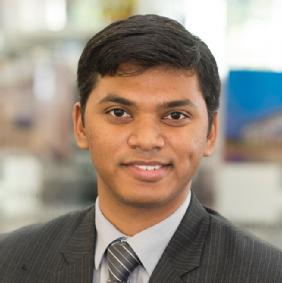
· Dr Heather Cegla – Physics
Responding to the success of University of Warwick academics securing Future Leadership Fellowships from UKRI, Professor Pam Thomas, the University of Warwick’s Pro-Vice Chancellor for Research said:
“I am delighted to see University of Warwick researchers being recognised by UKRI, and for them to receive support for their ground-breaking research. Drawn from across our University, the seven fellowships are welcome recognition of the depth, breadth and ingenuity of Warwick research. I wish our academics the very best as they continue their work and greatly look forward to following their progress.”
Universities Minister Chris Skidmore comments:
“Delivering on our research and innovation ambitions means putting people first, whether they are just starting out in their career or are leading major projects in academia or industry.
“These inspirational Future Leaders Fellows will generate the ideas of the future, helping to shape science and research for the 21st century. But to realise the full potential of these discoveries, their ideas need to be taken out of the lab and turned into real products and services, where they can actually change people’s lives for the better.
“That’s why we are creating 20 new University Enterprise Zones, helping local start-ups to co-locate in universities to build the businesses of the future – all inspired by university research.”
Professor Sir Mark Walport, UK Research and Innovation’s Chief Executive, said: “The Future Leaders Fellowships will enable the most promising researchers and innovators to become leaders in their fields, working on subjects as diverse as climate change, dementia and quantum computing.
“UKRI is committed to creating modern research and innovation careers and our Future Leaders Fellowships aim to support and retain the most talented people, including those with flexible career paths."
Dr Matthew Spencer, of the University of Warwick’s Centre for Interdisciplinary Methodologies will be researching Cybersecurity, will focus on producing new insights about cyber security practice through ethnographic analysis in Critical National Infrastructure organisations, closing the loop between cyber security policy and practice and develop new participative methods to improve cyber security practice.
Commenting on his research Dr Tom Gur, of the University of Warwick’s Department of Computer Science, said that it will be “focused on pushing the boundaries of classical and quantum verifiable computing and its real-world applications to delegation of computation to the cloud, as well as to blockchain technology. Its primary objective is to develop a wide arsenal of tools that would open new possibilities for meeting the challenges imposed by big data and the need for decentralised peer-to-peer systems.”
Dr Benjamin Richards, of the University of Warwick’s Department of Physics, says that he intends to “make a vital measurement of the rate and energy of neutrinos that arrive from distant supernovae throughout the galaxy. The properties of these neutrinos will tell us much about the wider composition of the universe as well as neutrinos themselves. This measurement will allow us to test the rate of black hole formation in the universe, test our models of supernova and tell us about the origin of heavy elements and metallicity of the galaxies.”
Dr Richard Moore, of the University of Warwick’s Department of Philosophy, will use the tools of philosophy, linguistics, and psychology to develop a new account of the developmental relationship between 'mindreading' and communication. Commenting, Dr Moore said: “Mindreading, involving the use of a 'theory of mind' (ToM) is the ability to attribute mental states to others to predict and explain their behaviour. Humans are better at this than other species, but the origins of uniquely human forms of ToM are disputed.”
Dr Angela Aristidou, of Warwick Business School, proposes to study the challenges of partnering across sectors, focusing on partnerships between the public sector and third sector, including charities, voluntary and community organizations. Commenting, Dr Aritidou seeks to examine these innovative partnerships, “I propose a project that leverages a multi-case, longitudinal design and draws on management, economics and public policy research”.
The research by Mr Siddartha Khastgir of WMG at the University of Warwick will focus on the global Connected & Autonomous Vehicles (CAV) industry, worth over £50billion (by 2035), with the UK CAV industry being projected over £3billion. Commenting, Mr Khastgir said that “the UK Government's Industrial Strategy aims to bring fully autonomous cars on the UK roads by 2021, one of the first countries in the world to achieve this. However, in order to realise this vision and the market potential, safe introduction of CAV is necessary, requiring significant research to overcome diverse barriers (technological, legislative and societal) associated with public deployment of CAV.”
Dr Heather Cegla of the University of Warwick’s department of Physics will use her research to help try and answer one of the biggest questions of all; Are we alone in the Universe? To understand the origins of life in the cosmos, we must also create a complete picture of planetary formation, evolution, and habitability. Commenting Dr Cegla said she aims to “understand and disentangle a fundamental barrier on the pathway to confirming other Earths: the stellar surface inhomogeneities from convection. Planet confirmation requires a mass measurement, which can be determined from the Doppler shift of the absorption lines in the stellar atmosphere.”
ENDS
20 SEPTEMBER 2019
NOTES TO EDITORS
For further information please contact:
Alice Scott
Media Relations Manager – Science
University of Warwick
Tel: +44 (0) 2476 574 255 or +44 (0) 7920 531 221
E-mail: alice.j.scott@warwick.ac.uk
WMG Professor takes on new role as Chair of the Faculty of Science, Engineering and Medicine
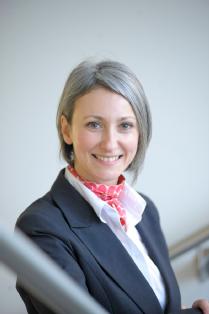 WMG Professor of Applied Psychology, Caroline Meyer, has been appointed as the new Chair of the Faculty of Science, Engineering and Medicine for the University of Warwick
WMG Professor of Applied Psychology, Caroline Meyer, has been appointed as the new Chair of the Faculty of Science, Engineering and Medicine for the University of Warwick
Professor Meyer will take up her new role when the current Chair of Faculty, Professor Mike Shipman, steps down over the summer.
Professor Meyer joined WMG at the University of Warwick from Loughborough University. With over 20 years experience in mental health and wellbeing, Professor Meyer sits on the Coventry Health and Wellbeing Board and West Midlands Combined Authority Board. She has also worked extensively with industry, from SMEs to multi-nationals, and third sector organisations, including internationally.
At WMG, Professor Meyer launched a new team focusing on Applied Psychology. This involves the application of psychological theory and techniques (including decision-making and cognitive and behavioural change) to improve mental health, workforce productivity and product innovation. The group also delivers fusion science research-led education programmes.
Professor Meyer will manage this new role alongside her current research responsibilities within WMG.
The role of the Faculty Chair
In addition to chairing the Board of the Faculty, Chairs of Faculties serve on a range of committees at the University, and are responsible for promoting the policies, programmes and procedures within their respective Faculty. Faculty Chairs are also a source of support and act as ‘first port of call’ for Heads of Department and Research Centres in the relevant Faculty and inform and influence the Faculty on key decisions affecting it and the University.
Faculty Chairs are also engaged in the appointment processes for key academic posts within the Faculty. Chairs serve ex officio on the following formal bodies: Senate, Steering Committee, Research Committee, Honorary Degrees Committee, Academic Quality and Standards Committee, Capital, Space and Amenities Group, the Academic Resourcing Committee, and might also act as Chair of the Investigating Committee and Appeals Committee.
